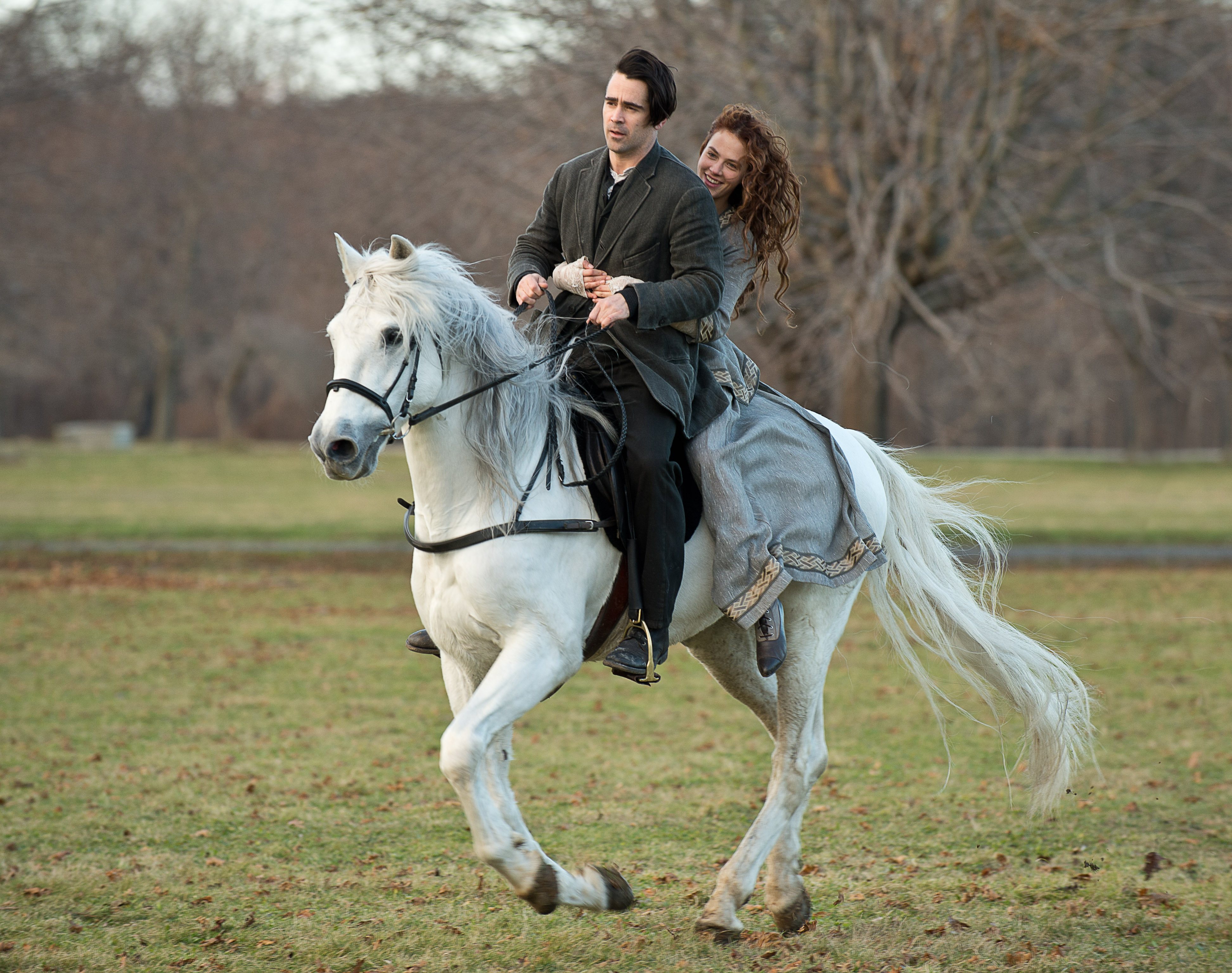I won’t mince words: Winter’s Tale was a disaster upon release. With a 13% rating on Rotten Tomatoes and a worldwide gross of only $30 million, there is no world in which Warner Bros didn’t regret releasing this film. The rumor is that it was a long-gestating passion project of Akiva Goldsman, who had worked on so many films with so many powerful players in Hollywood that he was able to call in favors and assemble an all-star cast and crew to bring his dream project to life. Every one of them likely wishes they had just said no.
That being said, it could have probably worked better than it did. Right from the start, Winter’s Tale establishes that Colin Ferrell’s Peter Lake has existed in multiple time periods, that he was shipped out in a tiny Moses-boat when he was still a baby, that everybody has a “miracle” for somebody else if the two can meet, and that there is a dog spirit (guardian?) that shows up to rescue Lake in the form of a horse, which is actually a Pegasus. When the Pegasus-dog-horse showed up, I checked my blu-ray timer to see how long the movie had taken to establish all this nonsense. It had been seven minutes and thirty seconds. Winter’s Tale wastes no time leaping into crazytown.
Nor does it waste time with its character arcs. It’s established during the Great Pegasus Escape that Russell Crowe’s Pearly Soames (what a name!) is there to kill Lake at all costs. When Peter Lake meets cancer victim Beverly Penn (Jessica Brown Findlay) while robbing her house, the two fall deeply in love at first sight. Beverly’s father Isaac (William Hurt) tells Lake right up front that he doesn’t want him sleeping with his cancer-ridden daughter. Despite its two-hour runtime, it feels like Akiva Goldsman is rushing through all of the exposition to make room for the actual plot.
And to be fair, once you get over all of the ridiculous ideas that this movie takes for granted, it begins to make sense: Beverly’s miracle is to make Peter immortal, Peter’s miracle is to cure some little girl’s cancer 100 years later, and Pearly works for the devil (or whatever we call the devil, since we’re told that’s a “new” name for him) and wants to kill Peter for…miracle-stoppage? And there’s a dog who’s a Pegasus? Okay, maybe it’s not all clear, but it’s at least functional.
It also helps to view the movie through the prism of a fairy tale. It’s never explained why the curse that knocked out Sleeping Beauty could be broken with a kiss, or why Cinderella’s Fairy Godmother can turn pumpkins into carriages, or why Cinderella’s sisters thought that brutally mutilating their feet to fit into glass slippers might help them marry a Prince (we’re talking Grimm’s Fairy Tales, here). You just accept these things, because it’s part of the genre. My fiancee seemed to enjoy the movie plenty due to this alone: as a fairy tale, it’s functional.
And maybe as a book (released in 1983), it’s more successful. With some direct prose and significantly more time to flesh out the scenario, Winter’s Tale could be a perfectly fine story. But it needed to be seriously revised to work as a film, and Goldsman was unable to wrangle it into a decent form here. Sure, the central story is clear once you accept and understand all the nonsense that serves as its foundation, but several questionable things are introduced even late into the film with no recognition of how silly they are. For instance, why does Will Smith (who literally plays Satan in this movie) dress and style himself like a fashionable man from 2014 while appearing solely in the early-20th-century sequences (likely answer: Smith owed Goldsman enough to show up in the movie, but not enough to change his style)? Why can Pearly make Peter mortal again by deciding to be mortal himself and then starting a fight? Why do Peter and the Pegasus turn into stars when they leave the Earth’s atmosphere at the end (oops, spoilers)?
It’s hard to say where I stand on this film in the end. It’s certainly not a successful movie. But on the other hand, it’s not quite the disaster that people often make it out to be. There’s probably a decent tale to be told here, but it needed somebody at the helm much more talented than the guy who wrote Batman and Robin.
